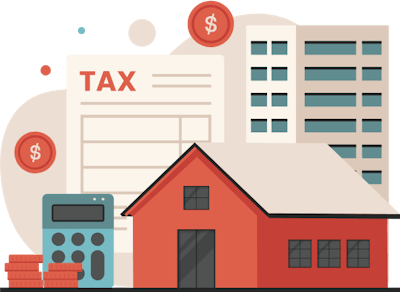
When Do You Start Paying Taxes on New Construction?
- Author:
- Zachary Sodolak
- Posted:
- December, 6, 2024
- Categories:
- About Our Communities
Purchasing a new home is an exciting milestone, especially when it’s a brand-new construction. However, alongside the joy of picking finishes and imagining your life in your new space, understanding the financial obligations—like property taxes—is essential. One of the most common questions new homeowners ask is: When do you start paying taxes on new construction?
In this article, we’ll explore how property taxes are assessed for new construction homes, how they differ from taxes on existing homes, and provide answers to frequently asked questions.
Property Taxes Explained: How Are Property Taxes Assessed on New Construction Homes?
Property taxes are essential for funding local services like schools, roads, and emergency services. However, the way property taxes are assessed can vary depending on whether you’re purchasing an existing home or a new construction home.

Property Taxes on an Existing Home
When you purchase an existing home, the property taxes are typically straightforward. Taxes are based on the home’s assessed value, which includes both the land and the structure. Since the home is already completed, the assessed value reflects the market value of the entire property.
Property Taxes on New Construction Homes
For new construction, the process is different. Initially, your property taxes may only be assessed on the value of the land. Once your home is completed and a certificate of occupancy is issued, your local taxing authority will reassess the property to include the value of the structure.
This two-step process means that during the first year of ownership, you might pay taxes only on the land, with an increase in subsequent years once the home is fully assessed.
FAQs
When Do You Start Paying Taxes on New Construction?
You start paying property taxes on your new construction home as soon as you take ownership of the property. However, initially, these taxes may only be based on the value of the land. Once the home is completed, typically within a few months of move-in, your property will be reassessed to include the home’s value.
If you’re financing your home, your lender will usually estimate your property taxes and include them in your escrow account. This means you’ll start making monthly contributions toward your eventual tax bill right away, even if the full assessment hasn’t been completed yet.

What Is the Average Increase in Property Taxes After Year One?
In the first year, you might only pay property taxes on the land. Once your home’s value is factored in, your tax bill can increase significantly. On average, homeowners can expect a 2-3x increase in property taxes once the structure is added to the assessment. This varies by location, as property tax rates and home values differ across regions.
For example, if the tax rate in your area is 2.5% and your land is valued at $50,000, your first-year taxes might be $1,250. Once your home is valued at $300,000, your taxes could increase to $8,750 annually.

Do You Have to Prepay Property Taxes?
Whether you need to prepay property taxes depends on your lender and local tax regulations. Most mortgage lenders require property taxes to be escrowed, meaning they’ll collect monthly payments from you and pay your tax bill on your behalf.
If you’re building a home on land you already own, you may need to pay property taxes on the land while the home is under construction. Once the home is completed, your taxes will increase based on the total assessed value.
Conclusion
Understanding when and how property taxes are assessed on new construction homes is key to avoiding surprises in your first year of homeownership. While the initial tax bill might only reflect the value of the land, expect an increase once your home is fully assessed.
By asking the right questions and planning ahead, you can budget for your property taxes with confidence. At Kindred Homes, we’re here to guide you every step of the way, from choosing the perfect floor plan to understanding the financial details of owning a new home.
